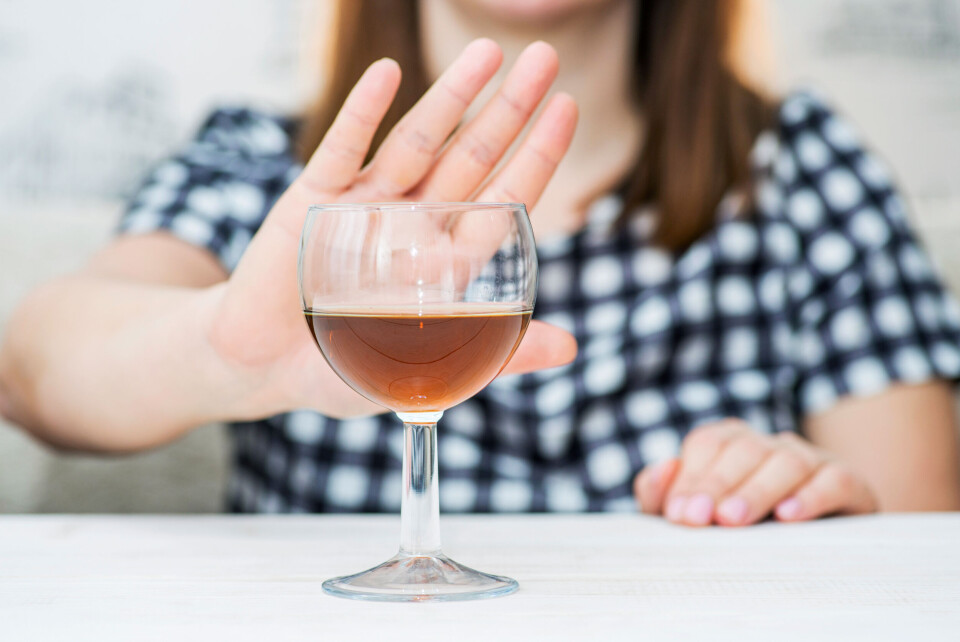-
White storks make strong return in France via nest ‘platforms’ and clipped wings
The Ligue pour la Protection des Oiseaux shares the conservation challenges in saving these birds from extinction
-
Hosting scheme in south-west France lets newcomers sample lifestyle
Households in nine Dordogne communes volunteer under Mes Nouveaux Voisins scheme
-
French boulangeries demand right for staff to work on May 1 so they can open
Artisan bakery owners can work but employees cannot, while certain industrial bakeries are allowed to remain open with workers
Dry January grows in France but not funded like anti-smoking campaign
The first edition of #LeDefideJanvier was set for state funding but this was retracted allegedly after outcry from the wine sector lobby in 2019

More and more French people are trying the Dry January initiative - launched in France under the hashtag #LeDefideJanvier - the monthly dedicated alcohol-reduction movement, now in its third edition.
However, associations which work with alcohol abuse claim double standards and say the initiative should have state funding like the Mois sans tabac, an almost similar annual initiative supporting giving up tobacco and held every November.
The anti-smoking event however is aimed at helping people to completely give up whereas #LeDefideJanvier is aimed at reducing consumption.
Almost a quarter (24%) of French people said they would try Dry January this year, according to figures provided by DryJanuary.fr, a website dedicated to the initiative.
This is up 13 points on the first and second edition when over 1 out of 10 (11%) French took part.
A dedicated Try Dry application was created in 2021 in France and recorded 11,295 downloads, claims the website.
The movement is bolstered by a handful of associations fighting against addictions, alcoholism, cancers and initiatives spawned across cities, including Paris, Lyon, Grenoble, Nantes, Toulouse, and Brest as well as media coverage from national news outlets.
‘Initiative does not want to sound moralistic but rather act as a prevention’
“It is a matter of public health. The idea is to help consumers assess their alcohol consumption and provoke a pause. It does not want to sound moralistic but rather act as a prevention”, said Claude Rambaud, septuagenarian and vice-president of the Federation d’associations France Assos Santé which first promoted the initiative, to The Connexion.
“Alcohol is involved in parties, festivals and professional settings. French social life has almost automatically integrated alcohol,” said Bernard Basset, 72 and a public health doctor, to The Connexion. “We want to disconnect this relationship,” he added.
Mr Rambaud sounded the alarm on premature alcohol-related deaths, pointing at a 2019-study from the Bulletin epidemiologique hebdomadaire, a French medical review, which estimated in a study the number of deaths to be above 41,000 a year. He then added that it did not count economic and mental hardships triggered [partly or mainly] by alcohol.
More than two thirds (71%) of participants reported better sleeping-habits, 88% reported money-savings, and 57% said they witnessed better concentration capacities, according to a study conducted by the University of Sussex and published on January 2, 2019. Mr Basset also reported decreasing tension-levels and loss of weight.
Mr Rambaud said the initiative gained traction thanks to support from associations and increasing media coverage.
Initiative does not receive state-funding
Associations are nevertheless pointing fingers at the government for not funding the initiative and often argue of a double-standard in comparison with the Mois sans tabac, an almost similar initiative supporting tobacco-withdrawal and which has been supported by Santé Publique France (SPF), the leading French health agency tied to the Ministry of Health.
Although not directly involved, SPF favours the initiative and provides health guidelines, having conducted and published an interview with Richard de Visser, a psychologist professor at the University of Sussex, highlighting its benefits in Great-Britain.
SPF was considering funding #LeDefideJanvier for its first edition before retracting after a general outcry from lobbyists of the wine sector, wrote the conservative newspaper Le Point.
The Connexion has contacted SPF and is awaiting a reply.
“The wine industry makes us believe that wine is different from other alcohols. From a health perspective, it is exactly the same as drinking beer, vodka or whisky. Wine is an alcohol. I’m repeating it because it is a scientific fact”, said then-minister of health Agnes Buzyn on February 7, 2018. Her comments distanced her from members of the government, including President Emmanuel Macron.
“It is not only cultural but part of a tradition. This relationship with wine is almost in our collective psyche”, said Mr Rambaud.
In the UK, 82,000 people signed up on Alcohol Change UK’s website and it is estimated that 6.5 million people are taking up the challenge. 2.7 million British had already given up six days after the 2021 edition, according to the newspaper The Drinks Business.
The figures for French people who have already given up [this year] have not yet been released.
Related articles
France is country where alcohol is drunk the most often, poll finds
French Champagne’s record €5.5bn year is ‘victory for good living’
France's 10-year plan aims to cut high number of avoidable cancers
























